Many cases of tiredness are due to stress, not enough sleep, poor diet and other lifestyle factors. Try these self-help tips to restore your energy levels.
If you feel you're suffering from fatigue, which is an overwhelming tiredness that isn't relieved by rest and sleep, you may have an underlying medical condition. Consult a GP for advice.
A good way to keep up your energy through the day is to eat regular meals and healthy snacks every 3 to 4 hours, rather than a large meal less often.
Read more about healthy eating.
You might feel that exercise is the last thing on your mind. But, in fact, regular exercise will make you feel less tired in the long run, so you'll have more energy.
Even a single 15-minute walk can give you an energy boost, and the benefits increase with more frequent physical activity.
Start with a small amount of exercise. Build it up gradually over weeks and months until you reach the recommended goal of 2 hours 30 minutes of moderate-intensity aerobic exercise, such as cycling or fast walking, every week.
Read more about starting exercise.
Find out the physical activity guidelines for adults.
If your body is carrying excess weight, it can be exhausting. It also puts extra strain on your heart, which can make you tired. Lose weight and you'll feel much more energetic.
Apart from eating healthily, the best way to lose weight and keep it off is to be more active and do more exercise.
Read more about how to lose weight.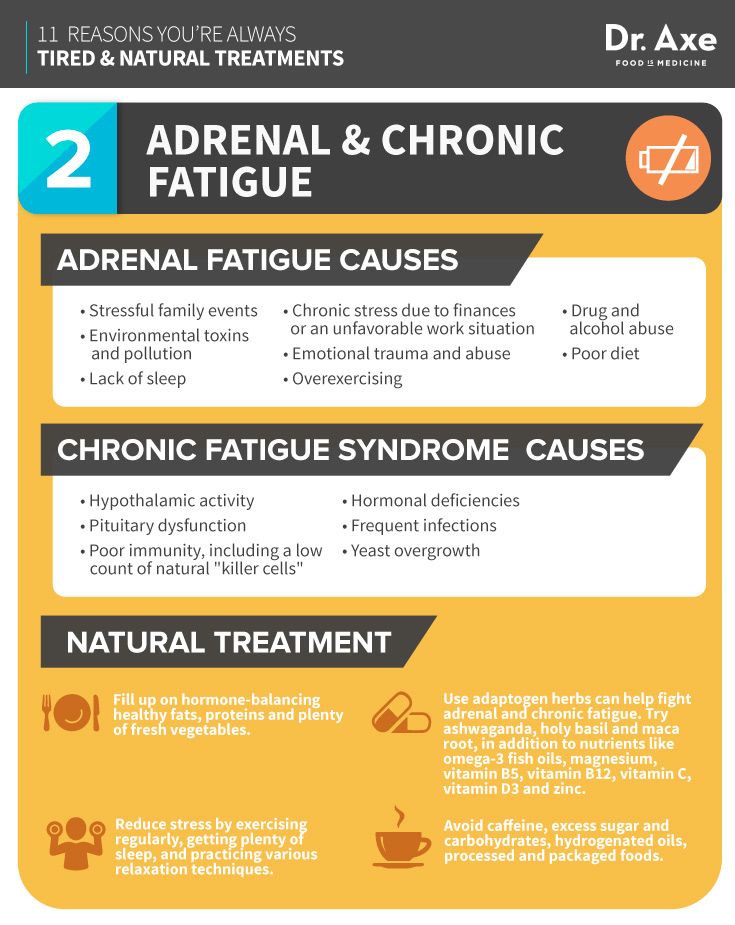
Many people don't get the sleep they need to stay alert through the day.
The website of the Royal College of Psychiatrists has information on sleeping well.
Tips for sleeping well include:
Stress uses up a lot of energy. Try to introduce relaxing activities into your day. This could be:
Whatever relaxes you will improve your energy.
Read more about how to relieve stress.
There's some evidence that talking therapies such as counselling or cognitive behavioural therapy (CBT) might help to fight fatigue, or tiredness caused by stress, anxiety or low mood.
See a GP for a referral for talking treatment on the NHS, or for advice on seeing a private therapist.
The Royal College of Psychiatrists recommends that anyone feeling tired should cut out caffeine. It says the best way to do this is to gradually stop having all caffeine drinks over a 3-week period.
Caffeine is found in:
Try to stay off caffeine completely for a month to see if you feel less tired without it.
You may find that not consuming caffeine gives you headaches. If this happens, cut down more slowly on the amount of caffeine that you drink.
Although a couple of glasses of wine in the evening can help you fall asleep, you sleep less deeply after drinking alcohol. The next day you'll be tired, even if you sleep a full 8 hours.
Cut down on alcohol before bedtime. You'll get a better night's rest and have more energy.
The NHS recommends that men and women should not regularly drink more than 14 units a week, which is equivalent to 6 pints of average-strength beer or 10 small glasses of low-strength wine.
Try to have several alcohol-free days each week.
Read more about how to cut down on alcohol.
Sometimes you feel tired simply because you're mildly dehydrated.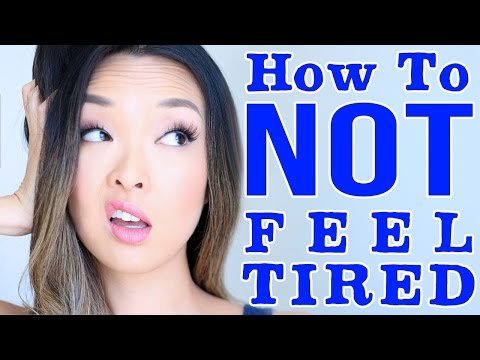 A glass of water will do the trick, especially after exercise.
A glass of water will do the trick, especially after exercise.
Read about healthy drinks.
Go to the store, and you'll see a multitude of vitamins, herbs, and other supplements touted as energy boosters. Some are even added to soft drinks and other foods. But there's little or no scientific evidence that energy boosters like ginseng, guarana, and chromium picolinate actually work. Thankfully, there are things you can do to enhance your own natural energy levels. Here are nine tips:
1. Control stress
Stress-induced emotions consume huge amounts of energy. Talking with a friend or relative, joining a support group, or seeing a psychotherapist can all help diffuse stress. Relaxation therapies like meditation, self-hypnosis, yoga, and tai chi are also effective tools for reducing stress.
2. Lighten your load
One of the main reasons for fatigue is overwork.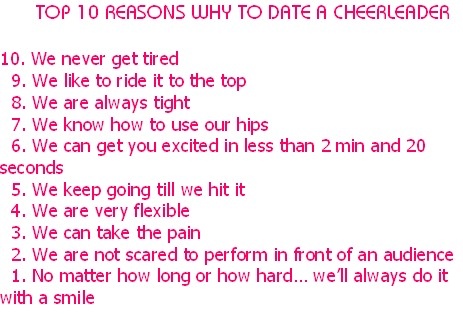 Overwork can include professional, family, and social obligations. Try to streamline your list of "must-do" activities. Set your priorities in terms of the most important tasks. Pare down those that are less important. Consider asking for extra help at work, if necessary.
Overwork can include professional, family, and social obligations. Try to streamline your list of "must-do" activities. Set your priorities in terms of the most important tasks. Pare down those that are less important. Consider asking for extra help at work, if necessary.
3. Exercise
Exercise almost guarantees that you'll sleep more soundly. It also gives your cells more energy to burn and circulates oxygen. And exercising can lead to higher brain dopamine levels, which helps elevate mood. When walking, pick up the pace periodically to get extra health benefits.
4. Avoid smoking
You know smoking threatens your health. But you may not know that smoking actually siphons off your energy by causing insomnia. The nicotine in tobacco is a stimulant, so it speeds the heart rate, raises blood pressure, and stimulates brain-wave activity associated with wakefulness, making it harder to fall asleep. And once you do fall asleep, its addictive power can kick in and awaken you with cravings.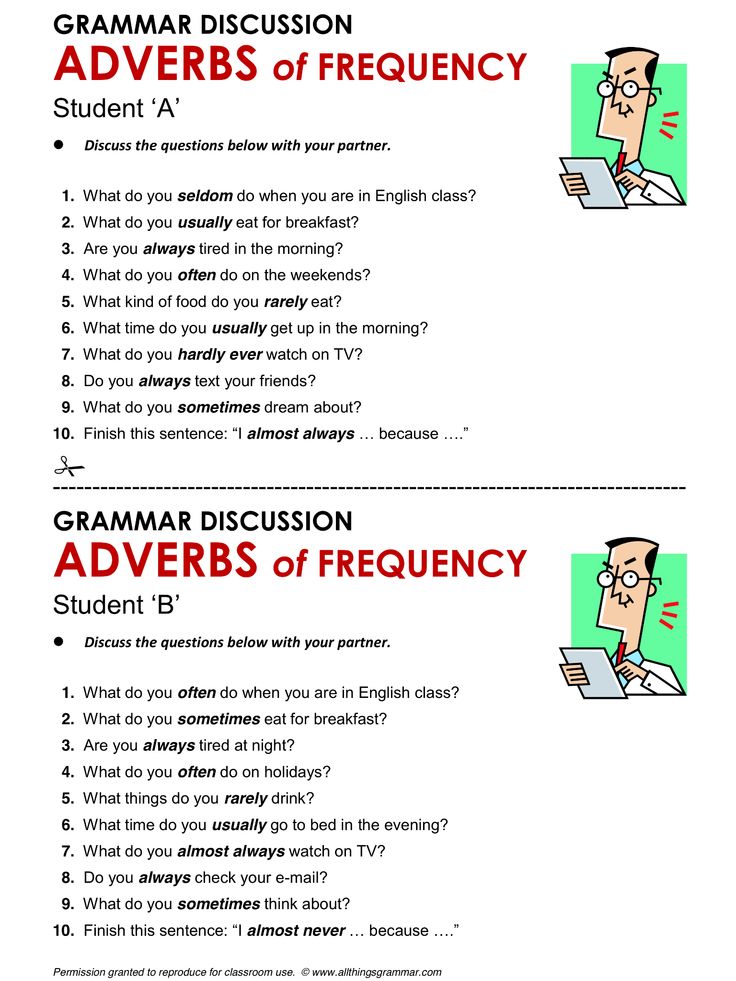
5. Restrict your sleep
If you think you may be sleep-deprived, try getting less sleep. This advice may sound odd but determining how much sleep you actually need can reduce the time you spend in bed not sleeping. This process makes it easier to fall asleep and promotes more restful sleep in the long run. Here's how to do it:
6. Eat for energy
Eating foods with a low glycemic index — whose sugars are absorbed slowly — may help you avoid the lag in energy that typically occurs after eating quickly absorbed sugars or refined starches. Foods with a low glycemic index include whole grains, high-fiber vegetables, nuts, and healthy oils such as olive oil. In general, high-carbohydrate foods have the highest glycemic indexes. Proteins and fats have glycemic indexes that are close to zero.
In general, high-carbohydrate foods have the highest glycemic indexes. Proteins and fats have glycemic indexes that are close to zero.
7. Use caffeine to your advantage
Caffeine does help increase alertness, so having a cup of coffee can help sharpen your mind. But to get the energizing effects of caffeine, you have to use it judiciously. It can cause insomnia, especially when consumed in large amounts or after 2 p.m.
8. Limit alcohol
One of the best hedges against the midafternoon slump is to avoid drinking alcohol at lunch. The sedative effect of alcohol is especially strong at midday. Similarly, avoid a five o'clock cocktail if you want to have energy in the evening. If you're going to drink, do so in moderation at a time when you don't mind having your energy wind down.
9. Drink water
What's the only nutrient that has been shown to enhance performance for all but the most demanding endurance activities? It's not some pricey sports drink.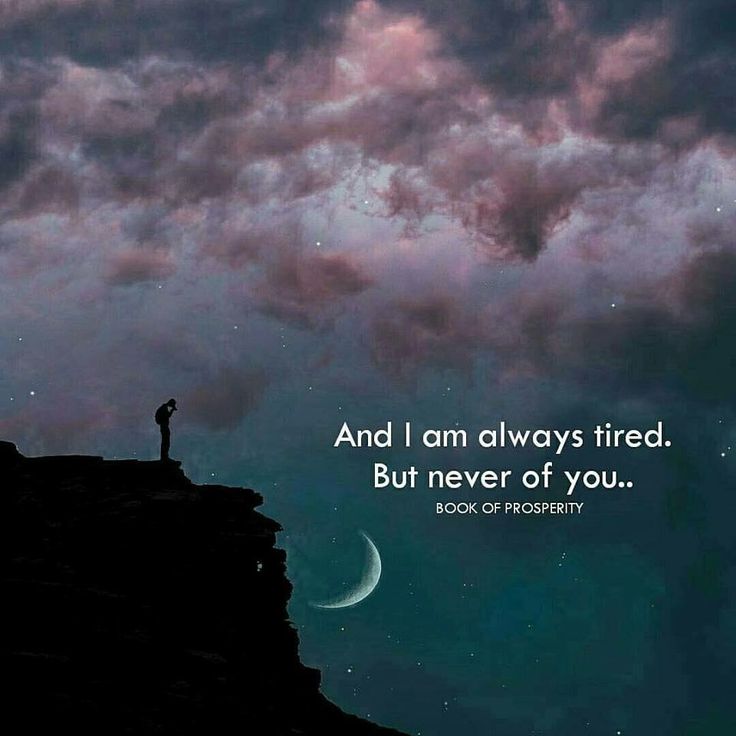 It's water. If your body is short of fluids, one of the first signs is a feeling of fatigue.
It's water. If your body is short of fluids, one of the first signs is a feeling of fatigue.
For more information on the many things you can do to increase your natural energy, order our Special Health Report, Boosting Your Energy.
Image: ©Gilaxia | GettyImages
I HAVE NO POWER! The lack of energy characteristic of spring fatigue manifests itself as fatigue, drowsiness or apathy. In addition to those mentioned, there may also be depression and loss of motivation. Fatigue is a normal response of the body to lack of sleep, increased levels of stress, overload at work or school, lack of vitamins and minerals, and a sedentary lifestyle.
1. Pay attention to vitamins and minerals
Vitamin D is deficient in autumn and winter, so supplements with this vitamin should be taken from October to March. We also lack other vitamins and minerals, which we get from fresh vegetables, berries and fruits in summer. Even if some of them remain until spring, the amount of nutrients in them decreases and becomes insufficient.
Even if some of them remain until spring, the amount of nutrients in them decreases and becomes insufficient.
2. Call the sleep fairy for help
A good night's sleep reduces tiredness and sleepiness during the day. The average adult needs seven to nine hours of sleep. Emotional stress, chronic pain, allergies, alcohol, night sweats plus mobile devices, computer and TV right before bed reduce the quality of sleep. During the day, if possible, 10 minutes of naps will be enough for a good boost of energy. However, it must be borne in mind that it is impossible to doze off for more than 30 minutes, otherwise it will be difficult to fall asleep in the evening.
3. Keep moving
You rarely feel like exercising when you're tired, but there are many studies that show that physical activity increases energy levels and has always been strongly associated with vitality and overall quality of life. When exercising, the work of the heart, lungs, muscles improves, which in general gives more energy for any activity.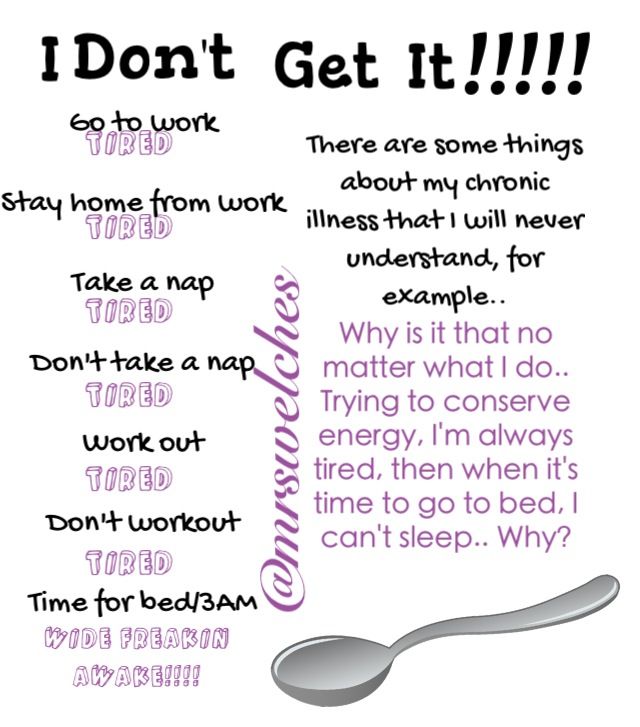 Interestingly, yoga is a particularly effective way to get energy. In a study conducted by the British, volunteers after six weeks of attending yoga once a week felt more energy, mental activity improved, and self-esteem rose.
Interestingly, yoga is a particularly effective way to get energy. In a study conducted by the British, volunteers after six weeks of attending yoga once a week felt more energy, mental activity improved, and self-esteem rose.
4. Drink more fluids
Dehydration, or insufficient fluid intake, weakens a person's performance, reduces vigor and impairs the ability to concentrate. An adult person needs to drink 1.5-2 liters of water per day, given that coffee, tea, alcohol contribute to the removal of water from the body, so the more these drinks are consumed, the more water you need to drink per day.
5. Remember Fats
Omega-3 fatty acids improve concentration and may reduce fatigue. Study participants in Italy consumed one fish oil capsule daily for 21 consecutive days. As a result, they were observed to react more quickly during the responses, and the participants themselves admitted that they felt more energetic.
6. Watch what you put in your stomach
Small, frequent meals help maintain an even blood sugar level, which provides the body with the energy it needs throughout the day.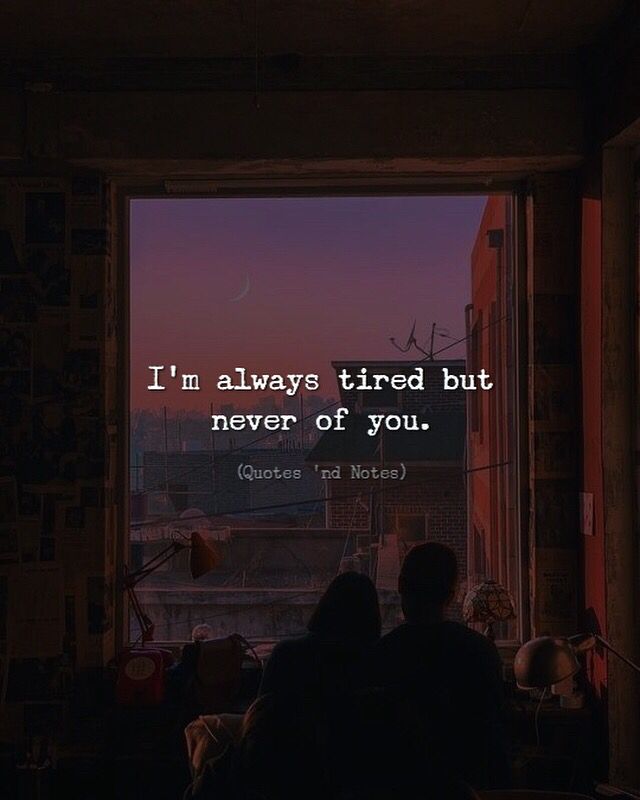 It is recommended to eat five to six times a day.
It is recommended to eat five to six times a day.
7. Ask for advice at the pharmacy
Various vitamin and mineral complexes are available in pharmacies, but those containing coenzyme Q10, ginseng and amino acids will provide additional energy. Coenzyme Q10 provides cells with the energy necessary for vital processes. In the body, coenzyme Q10 is synthesized in the liver, but after the age of 25 its production decreases, so it can be taken with dietary supplements. Ginseng is a medicinal plant with a pronounced tonic effect, and proteins are synthesized from amino acids, which, in turn, are the main “building material” in the human body.
IF FATIGUE CONTINUES
Consult your physician, as chronic fatigue may also indicate a more serious condition, such as diabetes, heart or thyroid disease, anemia, sleep apnea. Medications can also cause fatigue, such as various blood pressure medications, antihistamines, and diuretics. Talking to your doctor can help you find the causes of chronic fatigue.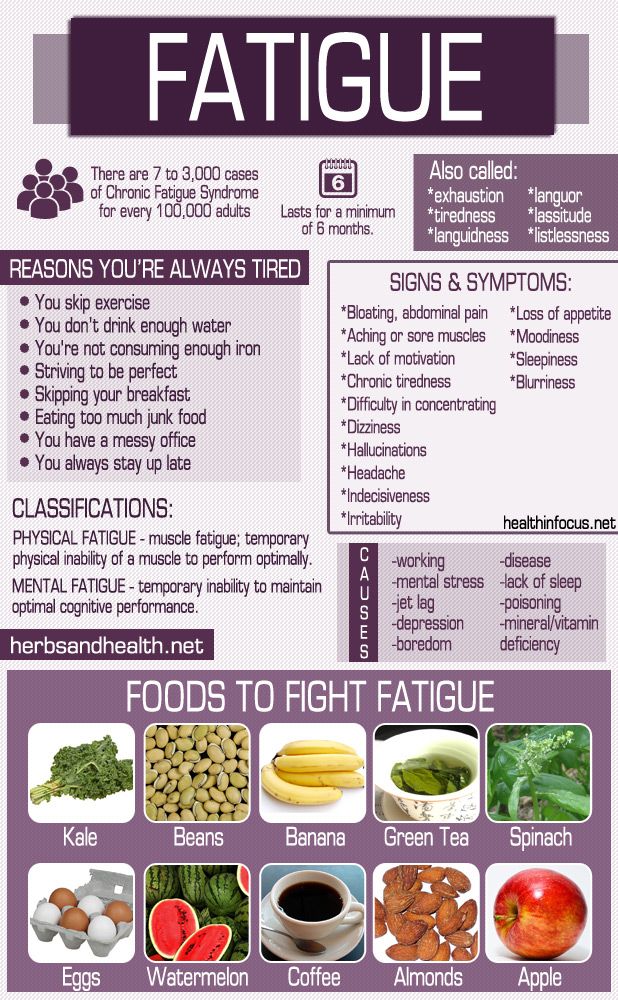
Author: NELLIA MAJORE
JOURNAL SECRETS OF HEALTH magazine-guide about health №23 March 2017
June 10 Productivity
Active recreation, the right goals and other sources of strength in case the internal batteries are completely dead.
You can listen to the article. If it's more convenient for you, turn on the podcast.
Sorry, we promised new and unhackneyed ways, but first we have to remind you of something banal. You already know that you need to sleep well, eat and exercise. We will not decipher, anyway, few people follow this. Let's say a few words about the introduction of healthy lifestyle into the daily routine.
Work out during your lunch break or at least go for a walk. In 2004, researchers from the University of Leeds found that employees who attend a corporate gym show better results and cope with stress more easily.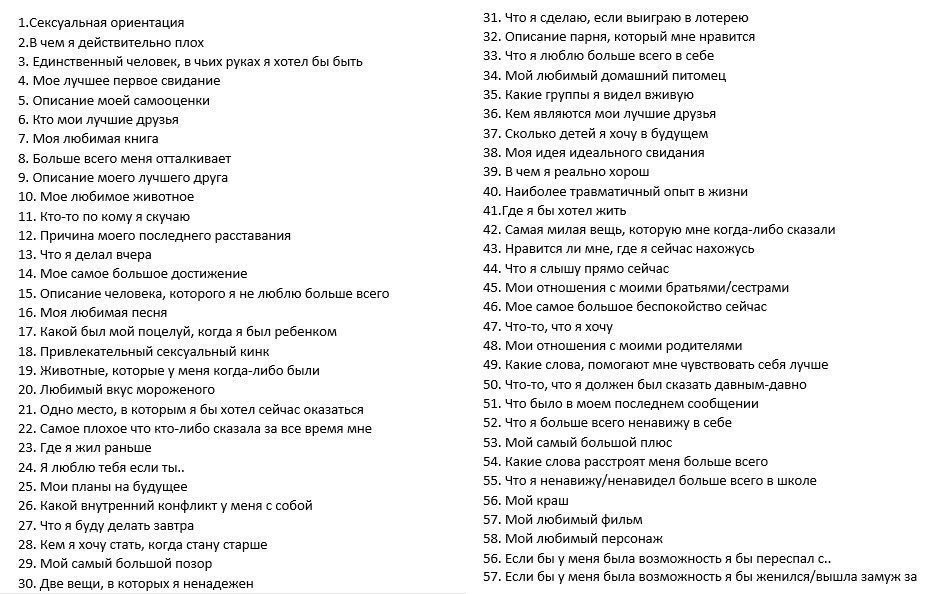 In addition, they like work more, they experience less stress, they do not feel tired in the afternoon, despite the energy expended during training.
In addition, they like work more, they experience less stress, they do not feel tired in the afternoon, despite the energy expended during training.
Rearrange the alarm clock. Let it ring not in the morning, when it's time to get up, but in the evening, when it's time to go to bed.
As John Duran says in Paleomanifesto, the technique of setting an alarm for the evening is a very useful technique to remind yourself that it's time for bed. The signal should sound one hour before lights out. After a reminder, you need to complete all the work, turn off the TV and extra lights, gradually get ready for bed.
Ask yourself, "What would Batman eat?" This advice comes from Cornell University professor Brian Wansink.
When deciding whether or not to eat dessert, consider what your childhood idol would do. If it doesn't work the first time, ask yourself the question three times. It will be easier to make a sound decision.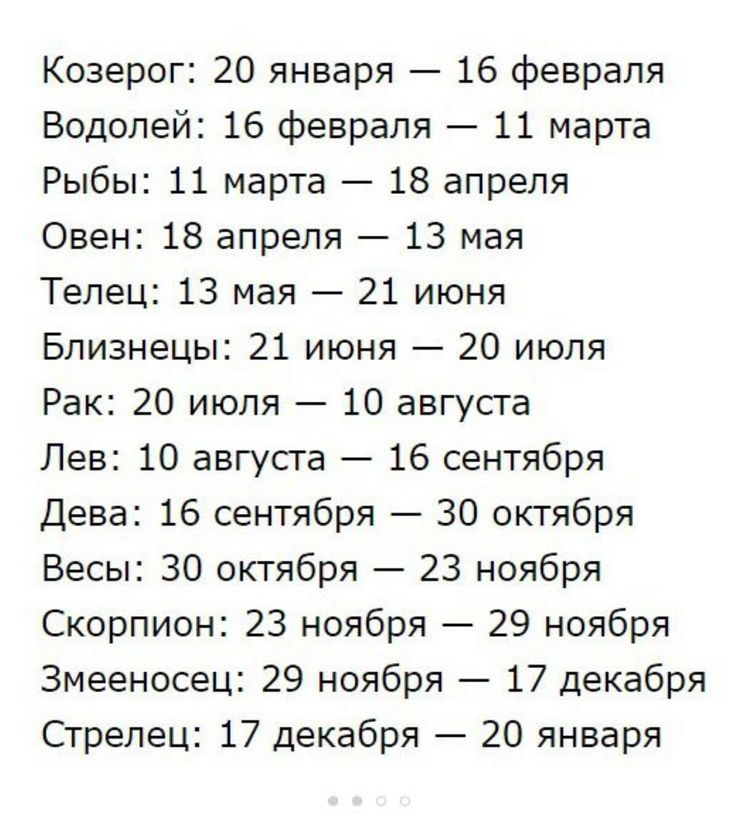
The boring and the obvious have been dealt with. To get energy at the right time, there is no need to mock your body. It's better to change the schedule.
Do you know how much the change of time zones affects a person? When, for example, a football team crosses three time zones to play, its chances of winning are halved, even if the opponent is weaker.
But we're not talking about athletes now. It’s just that if you are a pronounced owl, then it’s stupid to plan important tasks for eight in the morning.
Pay attention to your circadian rhythms and stay in the black: Athletes win and break records when they adjust race times to match their internal clocks.
One of the studies highlighted in David Randall's book "The Science of Sleep" showed that records in running, powerlifting, swimming were more often set by athletes whose competition schedule coincided with the second period of daily activity. In the long jump, for example, athletes at the peak of energy showed a result that was 4% better than average.
Did you set up synchronization with the internal clock? Super. Now we are learning to let go.
Maybe you have relative goals: "I want to be better than Sasha." Or maybe objective: “I want to get the highest score on testing.”
But if you want to increase the level of energy, then one goal should remain in your head: to become better.
Research by American psychologist Heidi Grant Halvorson shows that a focus on improvement increases the desire to work. We work with interest and passion when we think about progress, and not just about the task. Interest does not make you work with all your might, but fills you with energy.
It's not that hard. Just think about how to make everything you do better.
And now the second part: keep quiet. Research has shown that you shouldn't talk about your goals if you don't want to unleash the energy needed to achieve them. Scientists have concluded that pleasant fantasies do not come true because they do not provide energy to move towards the desired future.
So, we tuned in for the best and remembered that happiness loves silence. Where to get energy?
Fully armed soldiers need to march 40 km. But some were told that the distance was 30 km. Others say that they will have to walk 60 km.
After completing the forced march, the researchers measured the levels of stress hormones in the blood of both groups. What happened? It turned out that stress does not correspond to reality, but to expectations.
What do we conclude? Everyone gets what they expect.
The brain does not like to force the body to waste resources until it sees a real chance to win. Physical strength is not available as long as there is no faith in success, because there is no worse situation for the human body than to waste all resources and fail. At the moment when confidence appears, the gates open through which the flow of energy flows. Hope or despair is what we program ourselves for, say the authors of the book Maximum Brain Power.
Optimists have more energy. Pessimists have more stress. Everything depends not on objective circumstances, but on the point of view on them.
Charged with positive? Good. But maybe it's time to redo a bunch of things? What is needed for this?
What projects are you involved in at work? What household duties do you have? If you stick to what you're good at, you'll see the difference.
Research has shown that using strengths at work makes people happier. And at the same time it increases energy levels.
The longer a person works on what he can do, the more cheerful, happier he is, and the more he respects himself. Using your strengths makes you smile, learn interesting things.
According to the Gallup Institute, positive assessments of the past day, depending on the number of hours spent on favorite activities, as a percentage of the number of respondents, are distributed as follows:
| 0003 Daniel Pink, author of the bestselling book Drive and an expert on motivation, explains the secret of "small wins": tasks that seem insignificant can have a significant impact on our condition. Internal energy increases or decreases depending on how far projects have progressed, even small ones. Modest wins have an unexpectedly large positive effect, while small losses, on the contrary, have a negative effect. Maybe you can do whatever you want. But you will still find yourself in a state where the tanks are empty. How to make decisions when a tired brain refuses to work? 7. Listen to your inner voice if you are tiredResearch results say: when there is a lot of energy, you need to listen to the voice of reason. And when your head is porridge from fatigue, rely on intuition. Executive functioning depends on the amount of energy that glucose provides. And many cognitive processes deteriorate when there is not enough energy. When making decisions with low blood glucose, you need to trust the unconscious more, although when the level of glucose rises, it is worth returning to conscious decision making. So, you are already making progress. 8. Recover proactivelyDoesn't sound very logical. But if today you are exhausted, and tomorrow you don’t want to get tired, have an active rest: go to a workout or chat with friends. No sitting in front of the TV or at the computer. Kelly McGonigal Excerpt from the book "Willpower". The American Psychological Association found that the best recovery strategies are exercise, sports, reading, prayer, music, relaxing with family or friends, massage, walking, yoga, creative hobbies. Rest is worst when gambling, shopping, smoking, playing video games, surfing the Internet, watching TV shows or movies (more than two hours). Things to rememberSo you know how to recharge. Now let's sum up: how best to extract energy.
And finally. What charges batteries and warms the heart? Help others. Sounds illogical again? These efforts will not de-energize you. On the contrary, help is a tonic. It can even save a life. Lawrence Gonzalez's research focuses on survivors of a dangerous situation where lack of energy meant death. Those who gave support to others were more likely to be saved. Helping someone is the best way to save yourself from destruction. It helps to rise above fears, to conquer oneself. |